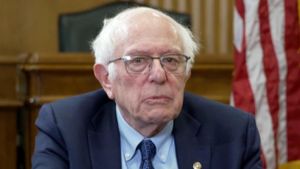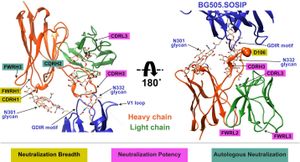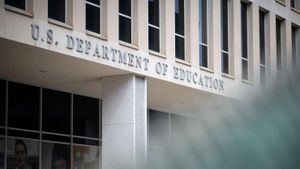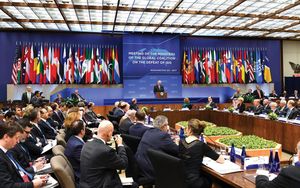Several provinces across Canada are pulling American alcohol from shelves, marking a significant move amid trade tensions with the United States. The response follows the recent announcement by U.S. President Donald Trump, who imposed tariffs on Canadian goods starting Tuesday, igniting fury and calls for retaliatory measures within Canada.
Premier Doug Ford of Ontario spearheaded the effort, declaring on Sunday the immediate removal of U.S. booze from the province's Liquor Control Board (LCBO). "Every year, LCBO sells nearly $1 billion worth of American wine, beer, spirits, and seltzers. Not anymore," Ford stated, adding, "there’s never been a greater time to choose amazing Ontario-made or Canadian-made products." The LCBO, responsible for the wholesale distribution of alcohol, will halt not only sales but also restocking of American products indefinitely.
This wave of nationalism surged across other provinces as well. British Columbia, Quebec, Nova Scotia, Manitoba, and Newfoundland and Labrador swiftly followed Ontario's lead. British Columbia Premier David Eby articulated the stance against American products, emphasizing the need to send a clear message to U.S. leadership. "The Americans are bigger, but if we don't stand up for ourselves, they will just keep coming back for more," he said.
Prime Minister Justin Trudeau announced retaliatory tariffs valued at $155 billion against U.S. goods, including 25 percent on alcohol among other products. His government responded to Trump's justification for the tariffs, which included claims about national security and the flow of contraband like fentanyl, by highlighting the low percentage of fentanyl originating from Canada.
The strategic withdrawal of American alcohol products aims to bolster local industries and support Canadian jobs. Manitoba Premier Wab Kinew framed the decision as not just economic, but as part of the national identity. "This is about who we are as Canadians and Manitobans, and supporting local products is pretty simple," Kinew remarked.
Experts and commentators have weighed the impact of these retaliatory moves. While some professors criticized the bans as excessive, emphasizing the importance of consumer choice, many provincial leaders stood firm. For example, Manitoba's decision highlighted local pride, as Kinew encouraged residents to explore local breweries and distilleries as alternatives.
British Columbia's liquor distribution strategy included additional bans on products from U.S. states governed by Republican leadership, such as Jack Daniels and Bacardi Rum. This targeted approach aims to isolate regions politically aligned against Canadian interests. The province expressed its intentions with signs reading "Buy Canadian Instead" at local liquor stores, which left many shelves bare of popular U.S. brands.
Premiers from various provinces echoed similar sentiments, urging residents to embrace local products. Ontario’s alcohol sales statistics indicate the significant role of American products, provoking concerns over future market availability and potential financial repercussions for local producers. "This is our chance to step back from dependency on these imported products," one Toronto-based brewery owner remarked.
Yet the pushback approach raises questions about the broader impact on trade relations with the U.S. Conservative Party members expressed skepticism about the effectiveness of these provincial measures, with some warning against the potential for escalated economic conflict.
"These punitive measures could backfire. Targeting alcohol is likely to provoke retaliation from our southern neighbors," stated B.C. Conservative leader John Rustad, emphasizing concern for the potential cascading effect on local economies heavily dependent on trade.
Economist Moshe Lander commented on the political optics of the move, questioning whether the ban would meaningfully affect U.S. politics: "Why are we compounding this problem by limiting consumer choice?" He pointed out the irony of penalizing U.S. producers from states with leadership opposed to Trump's actions.
While provinces actively adjust their liquor offerings, other experts note the move could potentially alienate consumers. Residents may view these measures with skepticism as they evaluate the costs of local versus imported options. "Support for local is valuable," warned one economic analyst, "but people should have the liberty to enjoy products they prefer."
Meanwhile, Quebec’s leadership has not yet instituted similar measures, though discussions among government officials indicate potential future restrictions on U.S. goods. Reports suggest varying degrees of compliance and willingness among local businesses and consumers to adhere to these new limits.
The liquor ban's implementation coincides with heightened tensions as Canada strikes back at U.S. tariffs. This move is emblematic of the wider trade war, with Canadian authorities committed to defending local industries and instilling national pride. A sense of urgency permeates discussions among consumers, leading to calls for strategic purchasing choices amid unruly economic waters.
While the bans are poised to reshape the liquor retailing space across Canadian provinces, the next chapter rests on the reactions from both consumers and American producers. The stakes have surged, as both nations grapple with the broader effects of protectionist measures and trade relations hinge on such decisions.
Despite the contentious backdrop of tariffs and trade tension, Canadian consumers' responses to these actions and the long-term viability of the strategy remain to be seen. The leadership across provinces is focused on challenging American dominance, hoping to pivot their market toward fostering domestic production and consumption.



